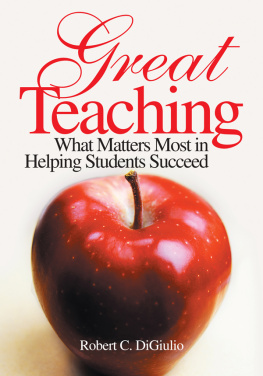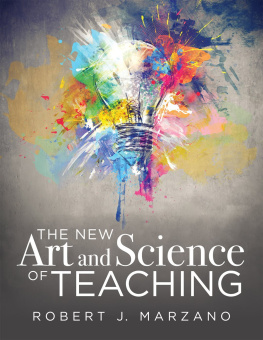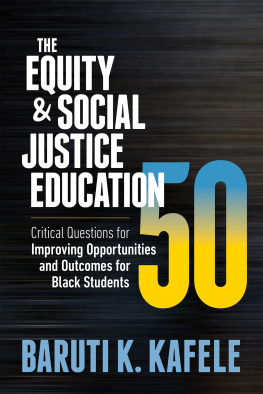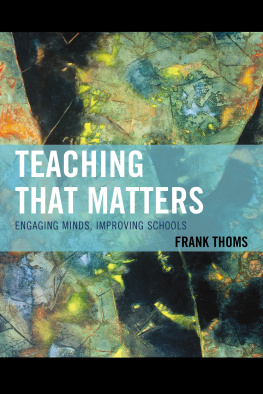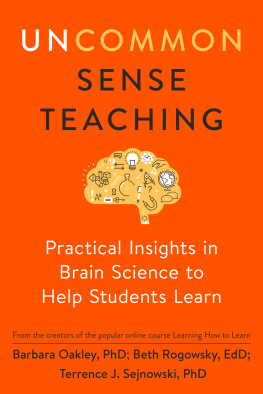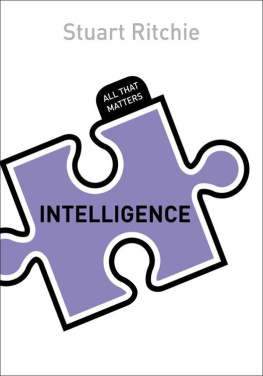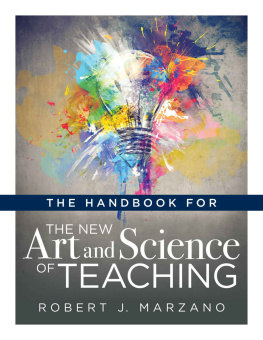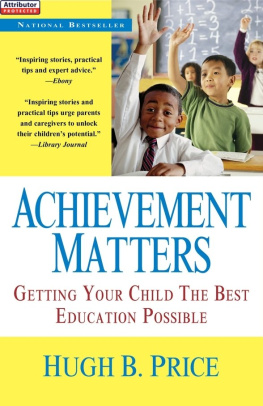Robert C. DiGiulio - Great Teaching: What Matters Most in Helping Students Succeed
Here you can read online Robert C. DiGiulio - Great Teaching: What Matters Most in Helping Students Succeed full text of the book (entire story) in english for free. Download pdf and epub, get meaning, cover and reviews about this ebook. year: 2016, publisher: Skyhorse, genre: Religion. Description of the work, (preface) as well as reviews are available. Best literature library LitArk.com created for fans of good reading and offers a wide selection of genres:
Romance novel
Science fiction
Adventure
Detective
Science
History
Home and family
Prose
Art
Politics
Computer
Non-fiction
Religion
Business
Children
Humor
Choose a favorite category and find really read worthwhile books. Enjoy immersion in the world of imagination, feel the emotions of the characters or learn something new for yourself, make an fascinating discovery.
- Book:Great Teaching: What Matters Most in Helping Students Succeed
- Author:
- Publisher:Skyhorse
- Genre:
- Year:2016
- Rating:4 / 5
- Favourites:Add to favourites
- Your mark:
- 80
- 1
- 2
- 3
- 4
- 5
Great Teaching: What Matters Most in Helping Students Succeed: summary, description and annotation
We offer to read an annotation, description, summary or preface (depends on what the author of the book "Great Teaching: What Matters Most in Helping Students Succeed" wrote himself). If you haven't found the necessary information about the book — write in the comments, we will try to find it.
Great Teaching: What Matters Most in Helping Students Succeed — read online for free the complete book (whole text) full work
Below is the text of the book, divided by pages. System saving the place of the last page read, allows you to conveniently read the book "Great Teaching: What Matters Most in Helping Students Succeed" online for free, without having to search again every time where you left off. Put a bookmark, and you can go to the page where you finished reading at any time.
Font size:
Interval:
Bookmark:

Teaching is an art that requires skill, a skill that comes by practice and as the result of long experience. But it is the skill of an artist, not of an artisan, that is required. Teaching is one of the fine arts; rather, it is the finest of arts. No other is comparable with it. All other arts deal with lifeless matter. Teaching has to do with the living soul. All other arts are perishable, this is for eternity.
Thomas J. Morgan, Principal,
Rhode Island State Normal School, from his
Studies in Pedagogy , 1888, p. 271

Copyright 2004 by Corwin.
First Skyhorse Publishing edition 2016.
All rights reserved. No part of this book may be reproduced in any manner without the express written consent of the publisher, except in the case of brief excerpts in critical reviews or articles. All inquiries should be addressed to Skyhorse Publishing, 307 West 36th Street, 11th Floor, New York, NY 10018.
Skyhorse Publishing books may be purchased in bulk at special discounts for sales promotion, corporate gifts, fund-raising, or educational purposes. Special editions can also be created to specifications. For details, contact the Special Sales Department, Skyhorse Publishing, 307 West 36th Street, 11th Floor, New York, NY 10018 or .
Skyhorse and Skyhorse Publishing are registered trademarks of Skyhorse Publishing, Inc., a Delaware corporation.
Visit our website at www.skyhorsepublishing.com.
10 9 8 7 6 5 4 3 2 1
Library of Congress Cataloging-in-Publication Data is available on file.
Cover design by Michael Dubowe
Print ISBN: 978-1-63450-779-0
Ebook ISBN: 978-1-63450-790-5
Printed in the United States of America
Contents
Preface
M y head is spinning! Theres too much to think about: paperwork, budget cutbacks, yet another new initiative, making sure the kids pass those standardized tests, getting the computers to work, trying to keep discipline in a classroom where some cant even sit still for a minute! Three teachers were part of a discussion group I led recently, and we were talking during a coffee break (thats when the real issues surface). From that discussion, we agreed how complicated teaching seemed to be today, given all the expectations placed upon teachers and given the lack of a clear sense of what is really important to do for and with students. As I drove home from that seminar, I thought about how right they were. There seem to be two huge, but connected needs, here: First, teachers today feel swamped by tasks and expectations, so many that it is difficult to discern what is really important. They ask, What do I do that really matters for student success? Second, teachers have an incomplete sense of how well they are meeting those many expectations: What am I doing well? What might I do more effectively? At this point I felt compelled to put together a plan that would clearly address these two needs. First, teachers need to get a clearer idea of what is really important in teaching (in terms of its effects on student success). Second, teachers need affirmation about the value of what they are already doing. Addressing these two needsfor information and affirmationformed the basis for this book.
I could attribute these teachers needs to many causes, depending on whom I wished to blame. Principals? Do they provide leadership and support to teachers as they did years ago? Parents? Are todays parents placing too many demands upon teachers? Politicians? Do they really understand schools and education? Students? Didnt they used to come to school, sit quietly, and cheerfully await instruction from the teacher? How about my blaming video games and TV? Or the fact our society has become so complicated with a bewildering potpourri of laws, rules, policies, and special interests? We could discuss these issues and come up with some good insights. But we can also say yes, these are all true and they all contribute to the two areas of need. In the end, affixing blame is unsatisfying, for blaming does not provide teachers with help that is useful. So while the finger-pointing may continue, my book is focused on providing useful information and help for teachers and for those preparing to become teachers. It addresses two need areas: (1) helping teachers identify what good teachers do and how they do it (information), and (2) through self-assessment and collaboration, helping teachers see how what they are already doing aligns with what is essential for student success (affirmation).
For 15 years I carried out research on classrooms, teachers, and students by asking, what is it that teachers and schools doand do not dothat matters most when it comes to our students? What helps students learn, both academically and socially? In essence, I have been asking, what is good teaching? My research has involved teachers and schools at the preschool, elementary, middle school, secondary, and postsecondary levels. It has encompassed urban and rural schools and teachers in the United States, Europe, Japan, Russia, and the West Indies. My research brought me to Finland as a Fulbright scholar examining those same questions. Originally, I began my research by observing classrooms and talking to teachers and saw some very good, great, and even heroic teachers, as well as some victims and burnout casualties. The more I probed, the more I realized it is not the age of a school, or its test scores, or the sensitivity of its metal detectors, or the number of its computer terminals, or even its funding that matters as much as the skills and qualities of the human beings who work there that make a difference. The best news is that those skills and qualities can be learned. One of my goals is to help teachers identify what those skills and qualities are and guide teachers in developing them more fully. In sum, I have tried to compose a research- and practice-based guide to the essentials of teaching from the point of view of what helps students the most.
In a sense, I am also writing this book as a historical document. I worry that the awareness of the skills and qualities that comprise great teaching is shrinking, in danger of disappearing both from the public eye and from the scope of teacher preparation. Thus, I speak not as a cheerleader of teachers but as a curator who seeks to keep alive the awareness of teachers skills and qualities that are essential to student learning.
Teaching has existed since the first humansgenerously and competentlyshowed other humans how to hunt, build a fire, and cook food. Good teaching has always placed the learners needs and interests first: What was beneficial to the studenthunting, fire-making, cooking, business, or medicinedefined what was right for teachers to do. Today, what is right for teachers to do is less clear. Getting information about how to teach well is not as readily available as one may think. Once their internships and student teaching experiences have ended, teachers seldom see, hear about, or discuss models of good and great teachers in the act of teaching. Yes, there are excellent teachers out there, yet even the general public rarely hears about them. The Royal Bank of Canada issued a bank letter on the unusual subject of The Importance of Teaching. In it, the bank wrote that unlike sports, politics, entertainment, the arts or the law, teaching does not give rise to stars. Nobody ever got a Nobel Prize for teaching achievements. School teachers, as opposed to university professors, are particularly under-recognized (1989, p. 1). The media rarely depict capable teachers whose students are succeedingacademically and sociallydespite difficult conditions in their communities. Even rarer is news about real young persons who do not bring weapons to school, young persons who are not violent, and young persons who have learned how civilized human beings behave, learning much of this from skillful, caring teachers.
Font size:
Interval:
Bookmark:
Similar books «Great Teaching: What Matters Most in Helping Students Succeed»
Look at similar books to Great Teaching: What Matters Most in Helping Students Succeed. We have selected literature similar in name and meaning in the hope of providing readers with more options to find new, interesting, not yet read works.
Discussion, reviews of the book Great Teaching: What Matters Most in Helping Students Succeed and just readers' own opinions. Leave your comments, write what you think about the work, its meaning or the main characters. Specify what exactly you liked and what you didn't like, and why you think so.

